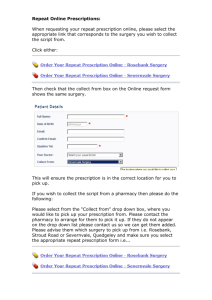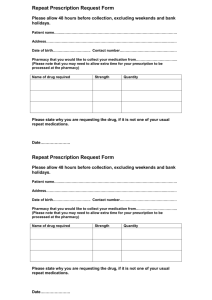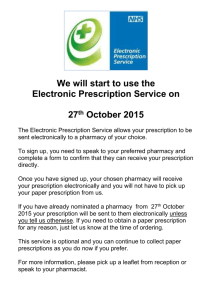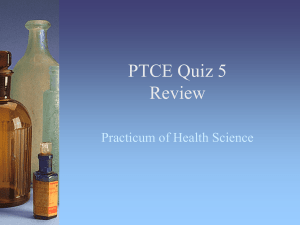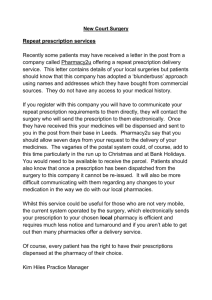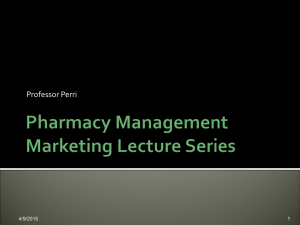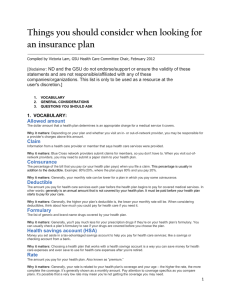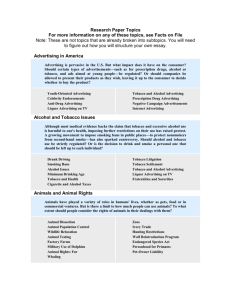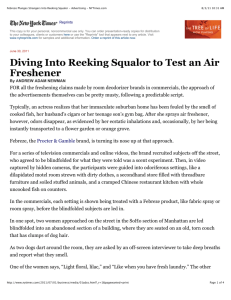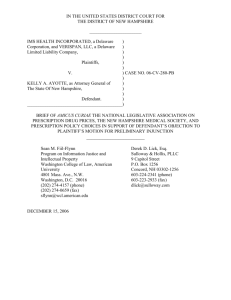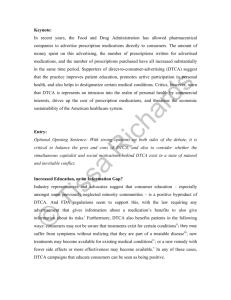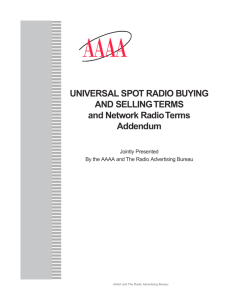Research Proposal
advertisement
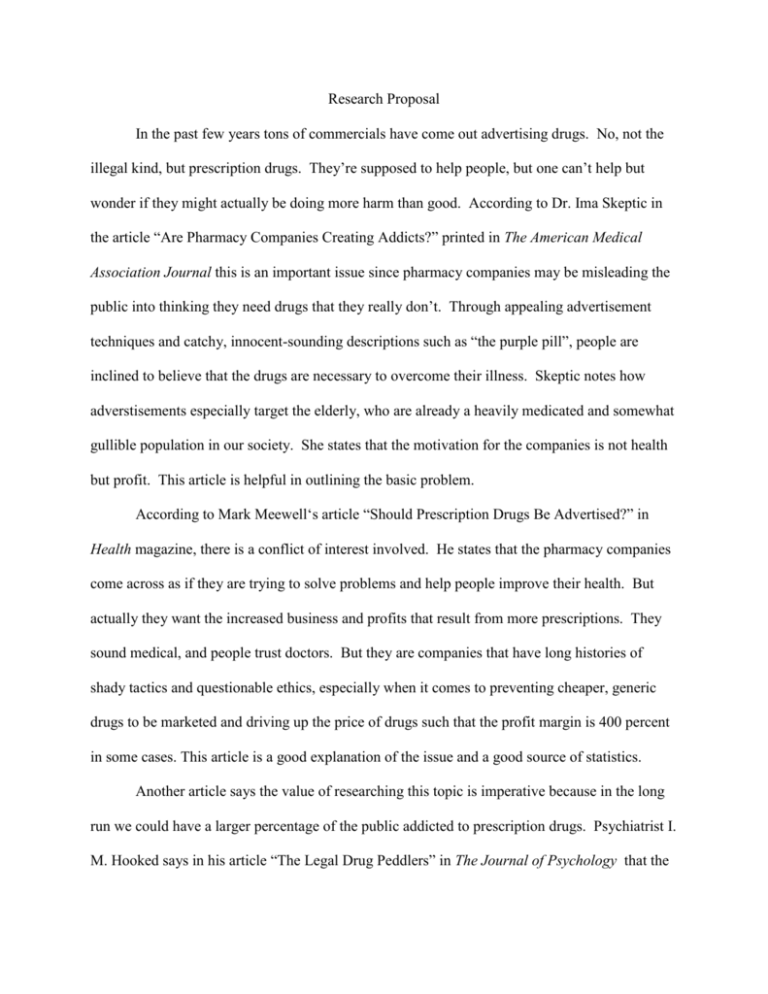
Research Proposal In the past few years tons of commercials have come out advertising drugs. No, not the illegal kind, but prescription drugs. They’re supposed to help people, but one can’t help but wonder if they might actually be doing more harm than good. According to Dr. Ima Skeptic in the article “Are Pharmacy Companies Creating Addicts?” printed in The American Medical Association Journal this is an important issue since pharmacy companies may be misleading the public into thinking they need drugs that they really don’t. Through appealing advertisement techniques and catchy, innocent-sounding descriptions such as “the purple pill”, people are inclined to believe that the drugs are necessary to overcome their illness. Skeptic notes how adverstisements especially target the elderly, who are already a heavily medicated and somewhat gullible population in our society. She states that the motivation for the companies is not health but profit. This article is helpful in outlining the basic problem. According to Mark Meewell‘s article “Should Prescription Drugs Be Advertised?” in Health magazine, there is a conflict of interest involved. He states that the pharmacy companies come across as if they are trying to solve problems and help people improve their health. But actually they want the increased business and profits that result from more prescriptions. They sound medical, and people trust doctors. But they are companies that have long histories of shady tactics and questionable ethics, especially when it comes to preventing cheaper, generic drugs to be marketed and driving up the price of drugs such that the profit margin is 400 percent in some cases. This article is a good explanation of the issue and a good source of statistics. Another article says the value of researching this topic is imperative because in the long run we could have a larger percentage of the public addicted to prescription drugs. Psychiatrist I. M. Hooked says in his article “The Legal Drug Peddlers” in The Journal of Psychology that the danger for addiction may not start with the kid pushing drugs in the schoolyard as much as it does with television commercials implying that no matter what ails you, there’s a prescription drug you can take for it. He also states that the side effects may be worse than the problem the drug is supposed to fix, but that the commercials run through that information quickly and in a lower tone of voice so as not to draw attention to the possible problems, some of which can be fatal. This article takes a psychology perspective in looking at the way the companies convince the public to literally buy into their claims. Dr. Maya Paine on the Doctor’s Forum website states that from a doctor’s perspective the prescription drug commercials are more than a nuisance. Pharmacy companies encourage people to “ask their doctors if Zocor is right for them,” putting more and more doctors in the position of having to justify why they want another treatment for their patient or defend their choice not to prescribe the drug. Doctors are pressed for free samples by their patients who have been taken in by the promises and the visual appeal of the ads. Also, the ads directly addressing the public seem to sidestep the doctor, almost second-guessing how they treat their patients. So it makes the doctors look like they aren’t doing their job. States that advertising shouldn’t be necessary For further research I would like to interview instructors in the Pharmacy Department, find statistics on how many more drugs are prescribed now that can be seen as a result of increased advertising, and find an opposing viewpoint saying that the advertising is making the public more aware and is part of a good free market practice. But my research should show how harmful advertising prescription drugs really is in creating addictions and other problems for patients as well as the medical world.
